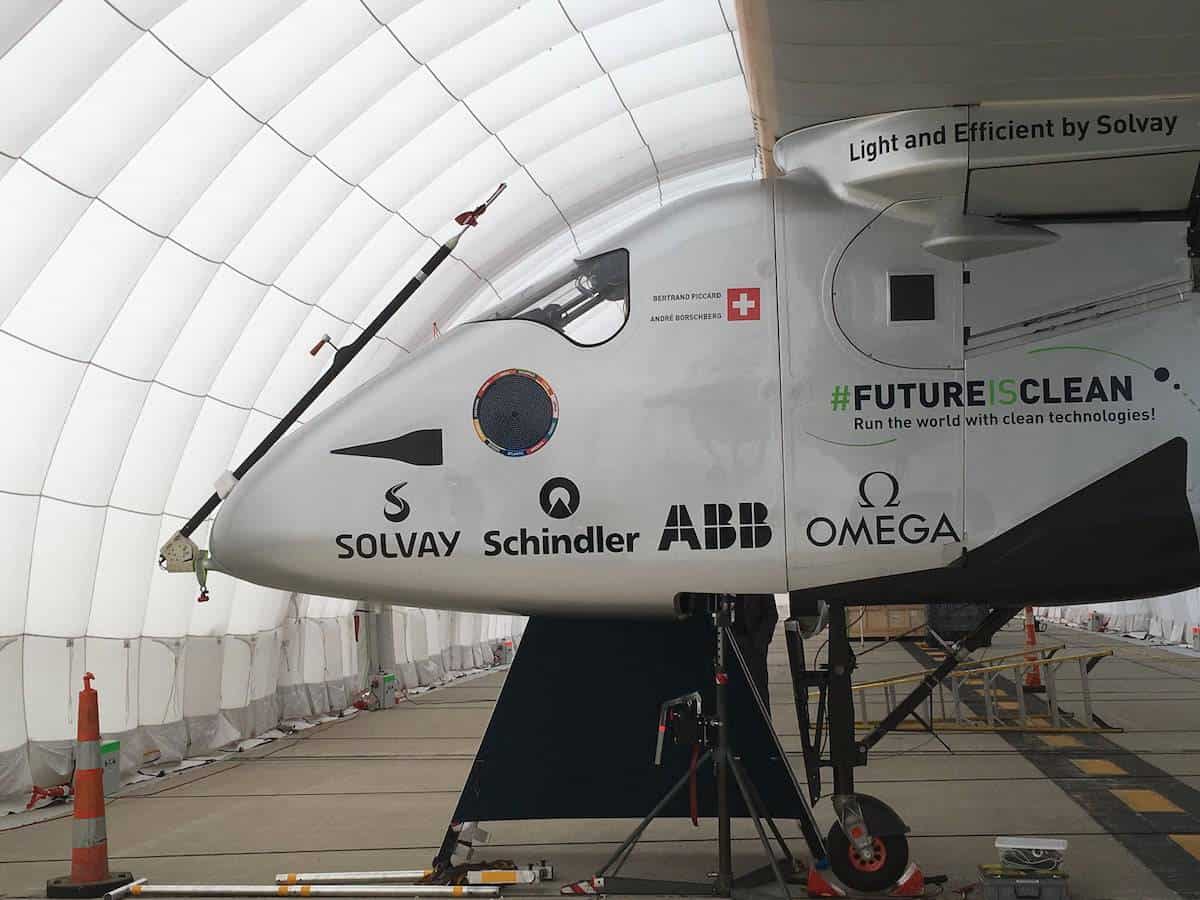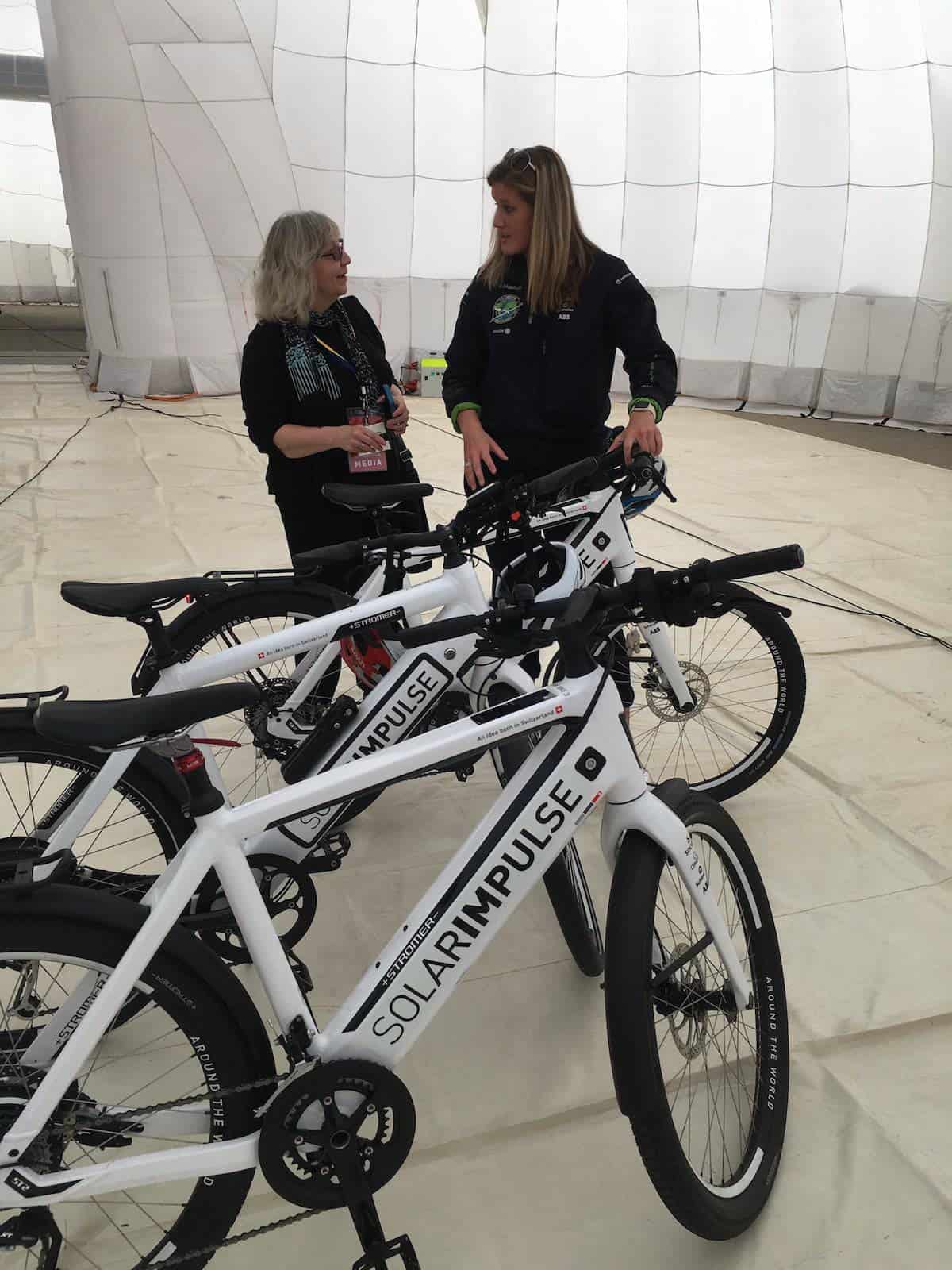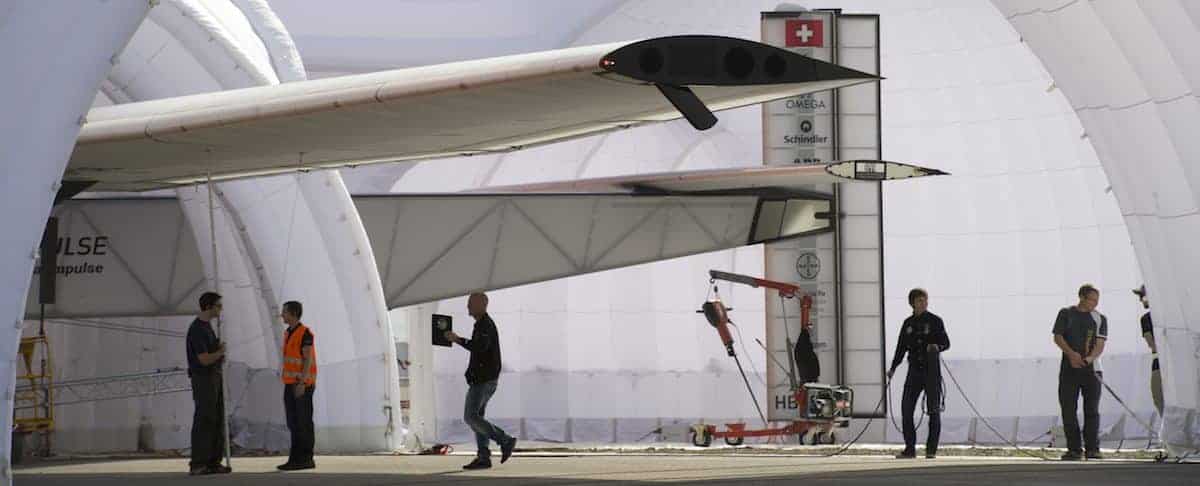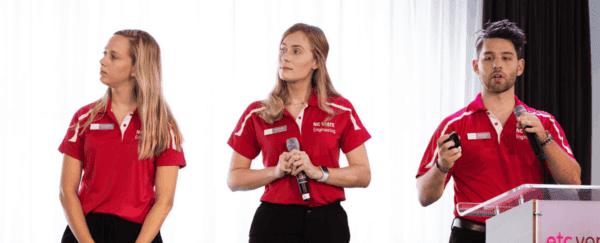
By Seabright McCabe, SWE Contributor
My hand was a hair’s width from touching the fuselage of Solar Impulse 2, the completely solar-powered aircraft flying around the world. “You wouldn’t touch the Mona Lisa if you were that close, would you?” my brain yelled to itself. I pulled my hand back.
I look up, and under the wing. It’s translucent, a doped fabric stretched tightly over ribs, just as early aircraft of the 20th century were. Only stronger, tighter. “The engineers tap on the fabric to make sure the tension is right,” Paige said.
Like vintage wood and wire aircraft, this plane is not fragile, just vulnerable. “There’s no way to safely land this in water, is there?” I said, thinking of the long flight over the Atlantic to come.
Paige shook her head. Even with the best materials, we all know that an O-ring can fail, a tile can be knocked away — we know how dangerous pioneering can be.
In fact, the day after our visit, the hangar had a near disaster, right on the ground. There was a cabinet failure — and the giant hangar began to deflate, its fabric ceiling beginning to settle on the wings. Only a split-second decision to reboot the generators restarted the fans and saved the wings from damage that would have cost the team months, and possibly ended its mission.

A good reminder that no trailblazing adventure is ever a hundred percent safe.
But on that day — no worries. We checked out the prototype electric bikes up close, studied the instrument boom on the aircraft’s nose, marveled that the landing gear is cranked up by hand (200 turns by the pilot) to save the weight of hydraulics and a control system. Chatted with other members of the international crew.
“Thanks, Paige!” We had to collect ourselves back at the car before setting out. It takes a minute to let an experience like this settle before you get behind the wheel again. Never know when a wrong turn might send you to Toledo instead of back home.
Many thanks to Paige Kassalen, the crew, and the Solar Impulse team for their time, and our SWE Magazine exclusive! Check back for the final installment of this blog, on the future of aviation. It’s more amazing than you think!







